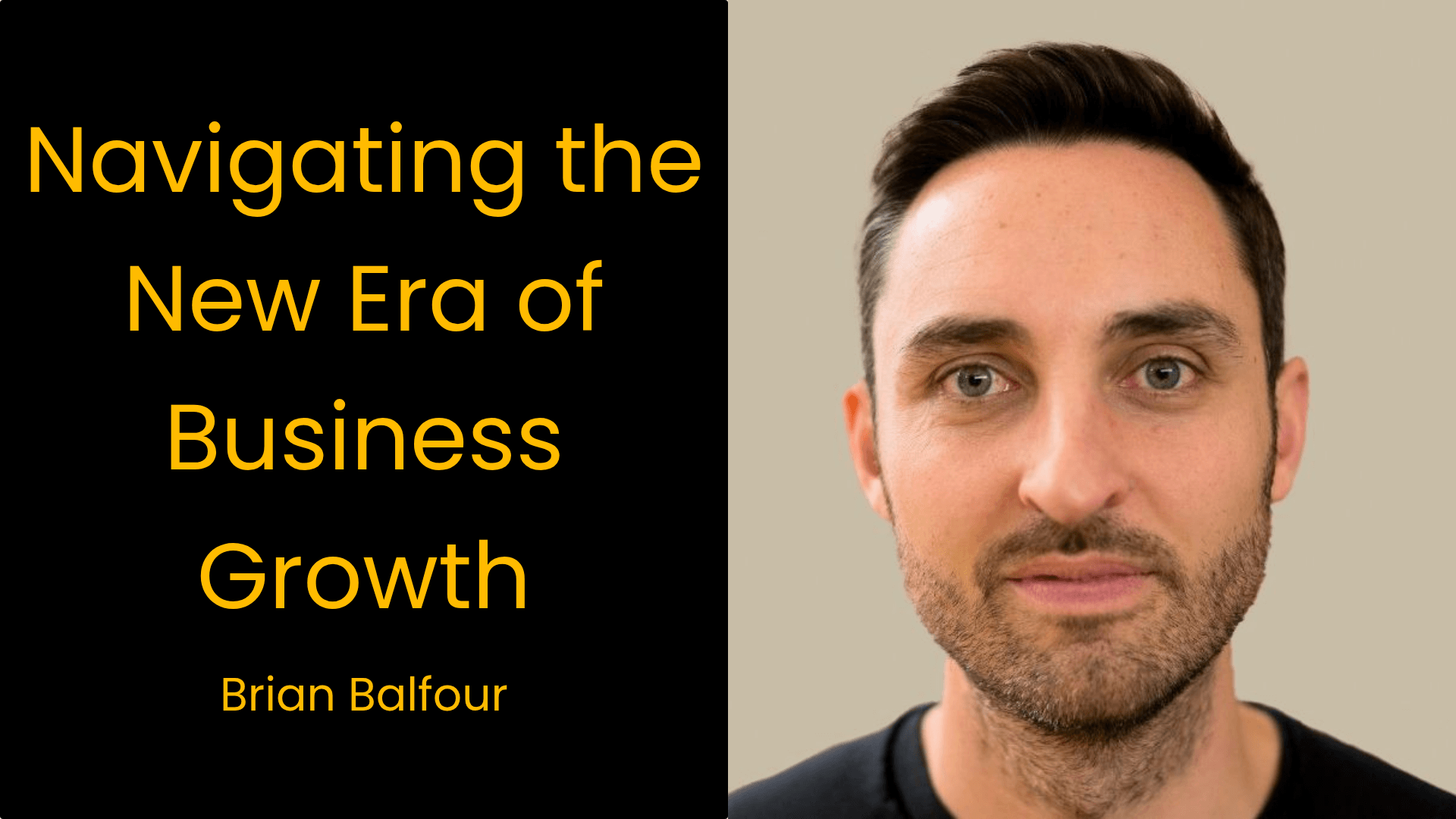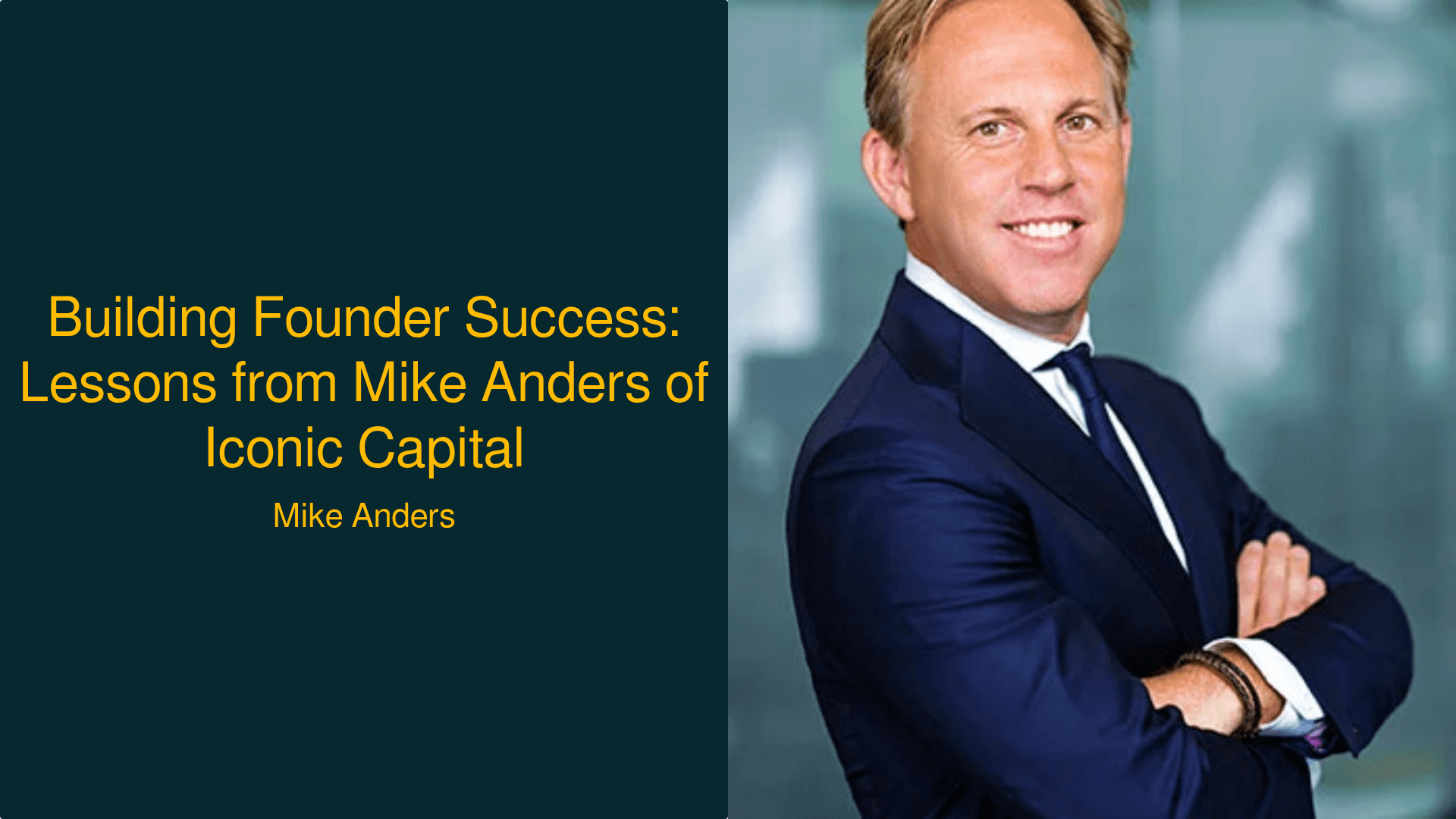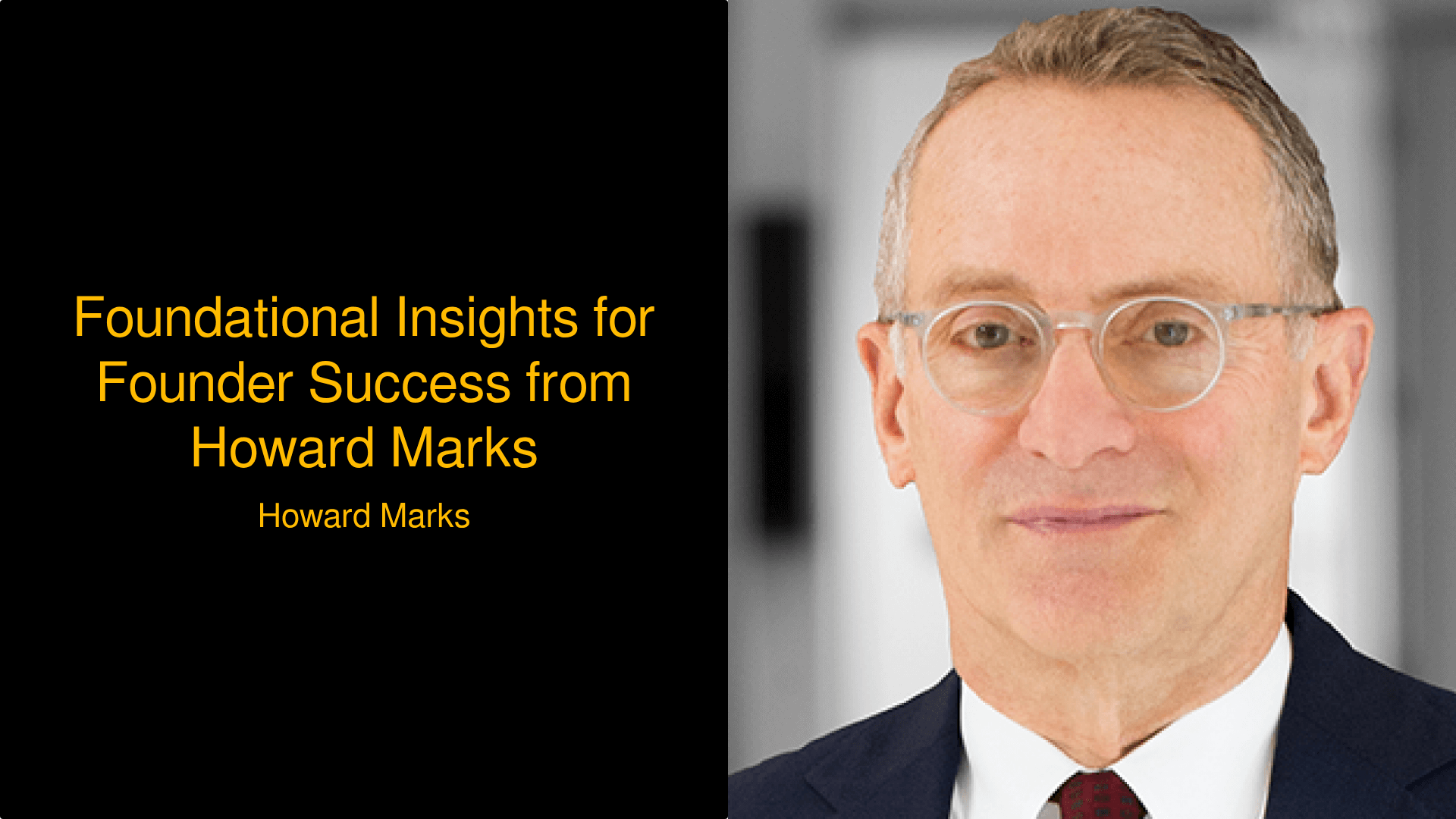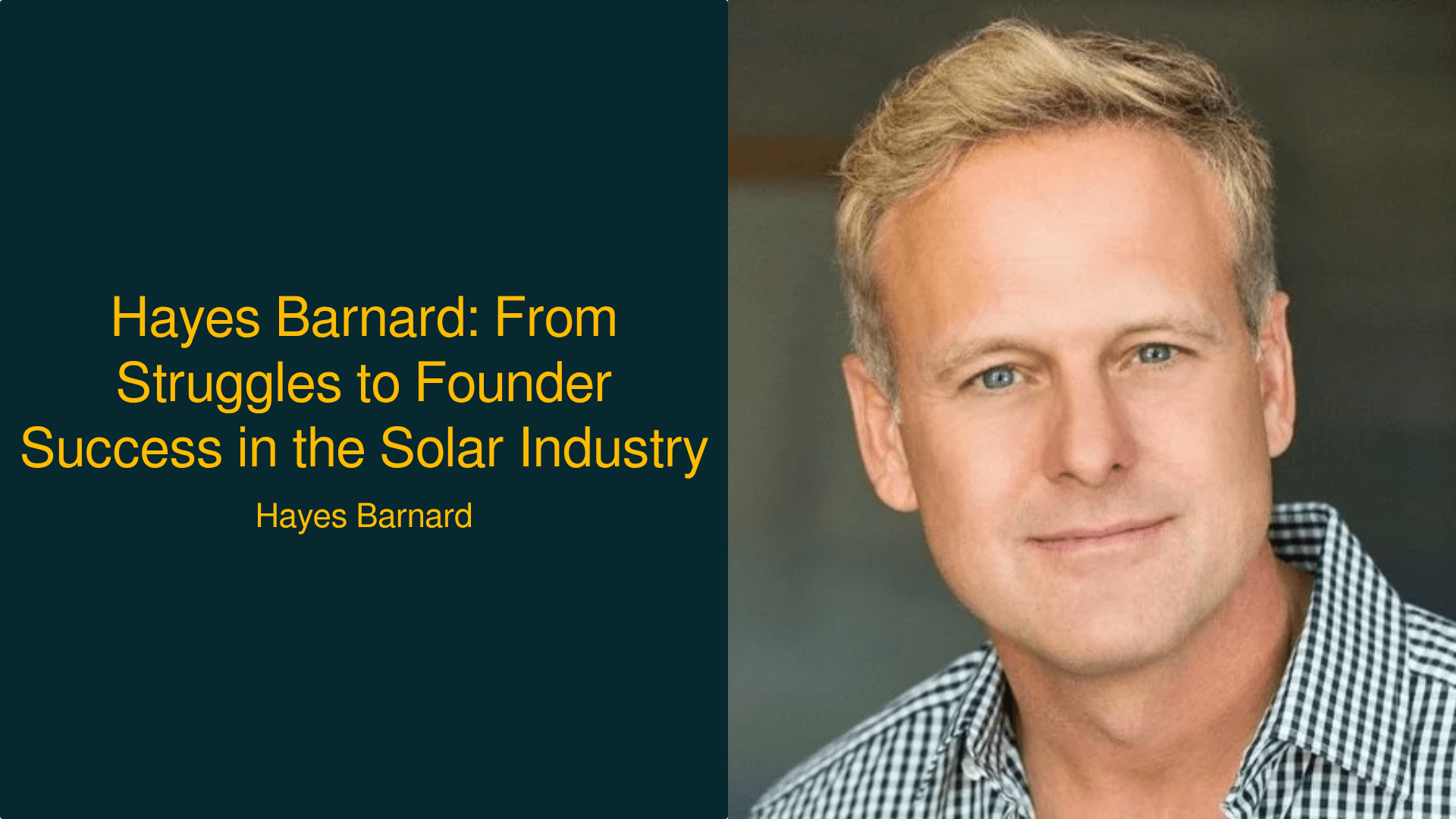Unlocking Founder Success: Insights from Brian Balfour on AI and Growth Strategies
Discover actionable insights and growth frameworks from Brian Balfour's interview, emphasizing the importance of adapting to new distribution channels.

Unlocking Founder Success: Insights from Brian Balfour on AI and Growth Strategies
In an age where technology evolves at lightning speed, founders must stay ahead to ensure their companies thrive. This episode features Brian Balfour, CEO of Reforge, who shares valuable insights on navigating the new landscape of business growth. With extensive experience at HubSpot and a deep understanding of distribution channels, Brian emphasizes the critical role of adapting to emerging technologies like AI. In this discussion, we explore key strategies and frameworks that can drive founder success, focusing on the necessity of embracing new distribution platforms and the importance of being proactive in a competitive market.
Understanding the New Distribution Landscape
Building a great product is one of those things that’s necessary but not sufficient. The separation is between those that build really great distribution. — Brian Balfour
Why it matters: The emergence of new distribution platforms presents a unique opportunity for startups to disrupt incumbents. Companies that recognize and act on these shifts quickly can gain a competitive edge. For instance, during the rise of Facebook, startups like Zynga leveraged the platform’s distribution capabilities to achieve rapid growth. This highlights the concrete impact that awareness and adaptability can have on business outcomes.
How to Apply This
- Identify current distribution channels relevant to your industry.
- Analyze potential new platforms, focusing on retention and engagement metrics.
- Develop a strategy to integrate with these platforms early.
- Create a feedback loop to assess the effectiveness of your distribution strategy.
- Iterate on your approach based on data and competitor actions.
The Importance of Timing and Agility
If you don’t do it, your competitors are going to go to the new platform and your customer expectations change. — Brian Balfour
Why it matters: Timing is crucial in seizing opportunities presented by new technologies. Companies that delay adaptation risk falling behind as customer expectations evolve. The rapid rise of AI tools demonstrates how quickly the landscape can shift. For example, businesses that embraced AI early saw substantial improvements in efficiency and customer satisfaction, while others struggled to keep pace.
How to Apply This
- Monitor industry trends and emerging technologies regularly.
- Establish a culture of experimentation within your team.
- Set clear deadlines for evaluating new tools and platforms.
- Encourage teams to share insights and learnings from experimentation.
- Be prepared to pivot quickly based on market feedback.
Building a Culture of Innovation
You have to play the game. It’s better to be early than to be super late to this game. — Brian Balfour
Why it matters: Fostering a culture of innovation within an organization enables teams to adapt to changes proactively. Companies that encourage risk-taking and learning from failures tend to outperform those that are risk-averse. Successful startups often create an environment where experimentation is the norm, leading to groundbreaking ideas and solutions.
How to Apply This
- Create a safe space for team members to share new ideas.
- Recognize and reward innovative thinking and problem-solving.
- Provide resources for teams to explore and experiment with new technologies.
- Facilitate cross-functional collaboration to inspire diverse perspectives.
- Regularly review and celebrate successful innovations within the company.
Navigating Challenges and Resistance
This isn’t a light change. This is a fundamental culture change of how we operate as a company. — Brian Balfour
Why it matters: Transforming a company’s culture to embrace new technologies can be met with resistance. Understanding the dynamics of change management is crucial. Companies that define clear expectations and provide support for employees during transitions are more likely to succeed. The challenge often lies in aligning the team’s mindset with the new vision.
How to Apply This
- Communicate the vision for change clearly and frequently.
- Identify champions within the organization who can advocate for the change.
- Offer training and resources to ease the transition.
- Set measurable goals to track progress and celebrate milestones.
- Solicit feedback from team members and adjust strategies as needed.
The Future of Founder Success
You have to choose one and go all in. Think about companies like Zynga that grew on Facebook. — Brian Balfour
Why it matters: The path to founder success is increasingly tied to the ability to leverage new technologies and distribution channels effectively. As the business landscape evolves, founders must remain vigilant and adaptable. Companies that position themselves strategically within emerging markets will have a significant advantage.
How to Apply This
- Assess your current market positioning and identify potential growth areas.
- Commit resources to explore and invest in new technologies.
- Build relationships with key players in emerging platforms.
- Stay informed about competitor actions and market trends.
- Develop a long-term vision that incorporates adaptability and innovation.
Conclusion
In conclusion, the insights shared by Brian Balfour emphasize the critical role of adaptability and proactive strategies in achieving founder success. As the landscape of business continues to evolve, it is essential for founders to recognize the opportunities presented by emerging distribution channels and technologies. By fostering a culture of innovation, embracing new tools, and remaining agile in their approach, founders can position themselves for success in an increasingly competitive environment. The journey may be challenging, but by leveraging the right strategies and insights, entrepreneurs can navigate the complexities of today’s market and thrive.


